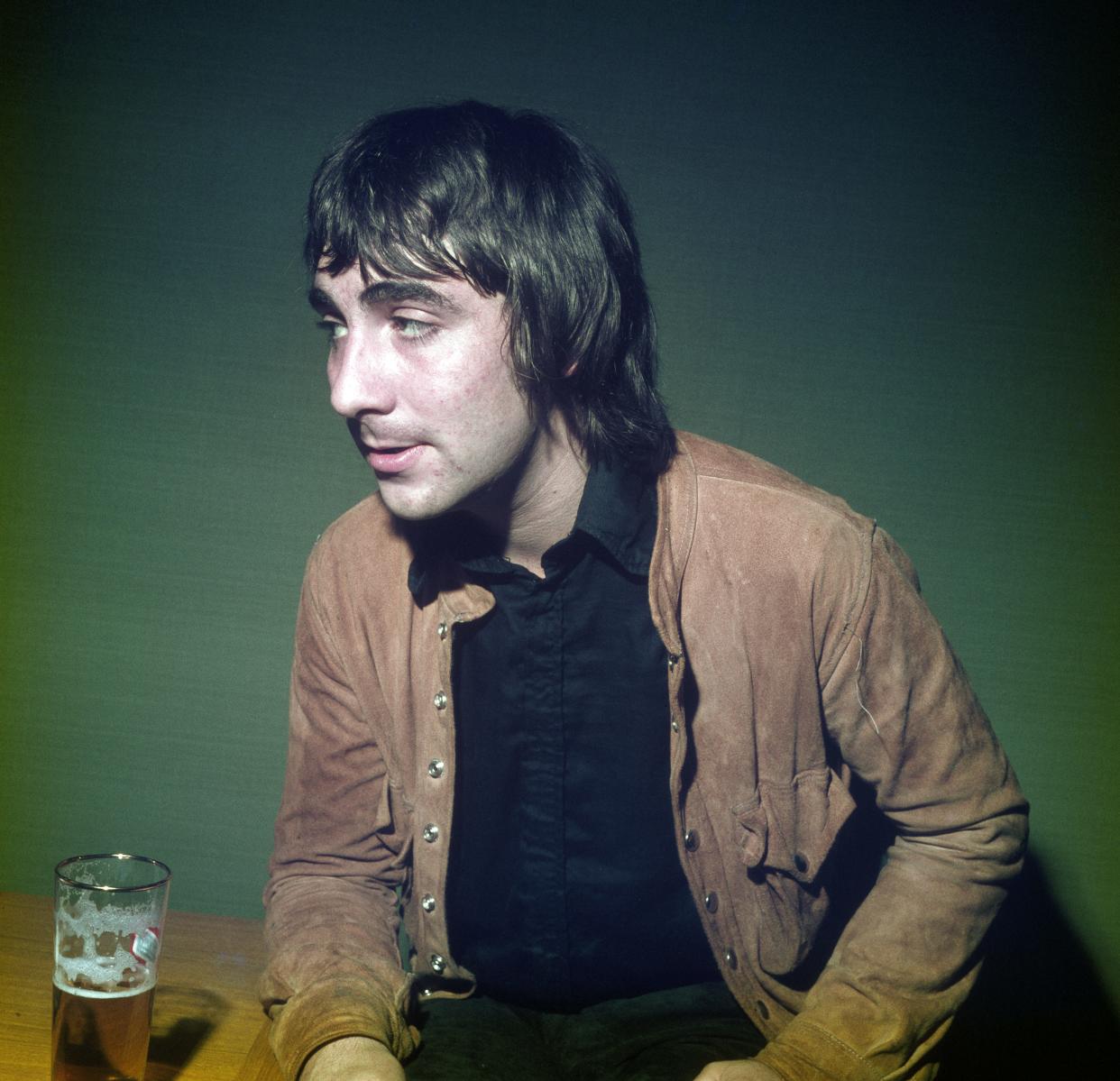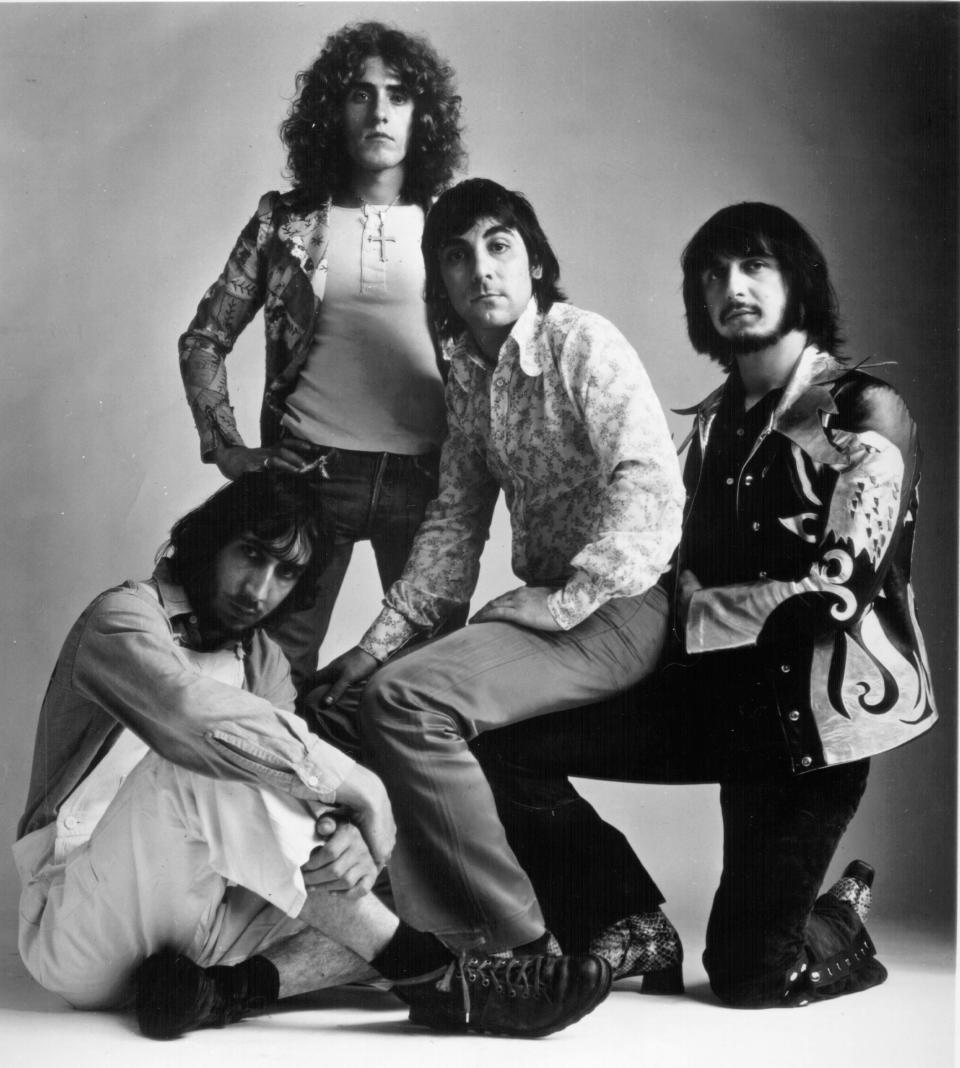The Who's Pete Townshend and Roger Daltrey remember Keith Moon, 40 years after his death

- Oops!Something went wrong.Please try again later.
- Oops!Something went wrong.Please try again later.
- Oops!Something went wrong.Please try again later.
Forty years ago, the rock world lost one of its greatest drummers and greatest all-around rock stars, the Who’s Keith Moon. On Sept. 7, 1978, “Moon the Loon” — as the hotel-room-trashing, horse-tranquilizer-gobbling eccentric was nicknamed — suffered a fatal overdose of Heminevrin, a medication prescribed to treat symptoms of alcohol withdrawal. He was only 32 years old.
Speaking to Yahoo Entertainment in 2016, Who frontman Roger Daltrey cited Moon’s death as one of the lowest points in his career — although he admitted that he wasn’t surprised by Moon’s overdose, considering the drummer’s long history of substance abuse and self-destructive behavior. “When Keith died that was particularly hard, mainly because we were expecting him to die at any moment. He had already lived his nine lives and loads of others,” Daltrey said. “And all of a sudden, the thing that knitted our rhythm together was gone. We were like four solo instrumentalists, and Keith was the guy with the knitting needles that knitted the three other balls of wool together. Losing him was incredibly hard.”
However, when Daltrey’s bandmate, guitarist Pete Townshend, spoke with Yahoo Entertainment while promoting his orchestral “Classic Quadrophenia” tour, reminiscing about the making of the Quadrophenia album in the early ’70s brought up an odd but happy Moon memory. Townshend admitted it was “a bit of a weird story” — one that not only revealed Moon’s lesser-known softer side, but also dated back to the Who’s earliest involvement with charitable causes. (Last year’s “Classic Quadrophenia” concerts in Chicago and L.A. benefited Teen Cancer America, a charity with which Daltrey also works closely.)
“About halfway through the session for Quadrophenia, we got a phone call from an actress who is the woman who plays a role [Patsy] in Absolutely Fabulous, a woman called Joanna Lumley, asking one of us to come to meet her somewhere in London,” Townshend recalled. “And I was very, very busy, and I said, ‘No, I can’t come, but I’ll see if any of the other guys would come.’ And Keith Moon offered to go — very much hoping that it would lead to something sexual, I think. Anyway, he met Joanna Lumley, and it turned out that what she’d done is invited him to the very, very first women’s refuge in the world [the domestic violence shelter Chiswick’s Women’s Aid, founded in 1971]. And Joanna got him cleaning toilets. In fact, she confirmed this story to me the other day. I saw her at a party, and I said, ‘Is my story about Keith right?’ And she said, ‘Yes. I got him cleaning toilets.’
“He came back in tears. And he said, ‘Pete, we’ve got to do something for these women!’ And I didn’t realize until I read books about Keith much, much later that he was … I wouldn’t say he was a wife-beater, but he had real violent outbursts against his wife, Kim, because he was convinced that she was cheating on him — whereas of course, in fact, it was the other way around. So, we started to do shows for the woman [Erin Pizzey] who started [the Chiswick refuge]. And that’s how charity work began for me and for the band. And we’ve gone on from there.
“Anyway, that was a great moment. And it was one of the nicest stories about Keith, I think, that something had touched his heart — because usually, he would turn everything into a gag.”

Two months after Moon’s passing, the Who recruited former Small Faces drummer Kenney Jones, who played on the 1981 album Face Dances and 1982’s It’s Hard. But, true to the latter album’s title, Daltrey, Townshend, and bassist John Entwistle found Moon impossible to replace. After It’s Hard, the Who didn’t release another new album for 24 years. “Kenney Jones is a great drummer, but we soon realized that Keith wasn’t just a normal drummer. Keith couldn’t play four-to-the-floor. He went anywhere but there. And just as Kenney was wrong in the Who, Keith would have been totally wrong in the Small Faces,” said Daltrey. “So, it proved to be incredibly difficult to fill that spot once Keith was gone.”
Thankfully, in 1996, the Who were able to find a new drummer who’d actually apprenticed under Moon: Ringo Starr’s son and Moon’s godson, Zak Starkey, who became interested in music at age 8 after Moon gave him his first drum kit. “We got lucky and got Zak Starkey, who actually got his first drum lessons from Keith. Zak knew how Keith thought, and knew how he played,” said Daltrey, adding with a laugh, “Keith was kind of like his babysitter — which is a bloody terrifying thought, isn’t it?”
Twenty-four years after Moon’s passing, Entwistle died at age 57 of a cocaine-induced heart attack, one day before the first date of the Who’s planned U.S. 2002 tour. Daltrey and Townshend have done their best to carry on the group’s legacy since then, releasing an album of new material, Endless Wire, in 2006 and touring as recently as 2016 (with Starkey on drums). And now a long-delayed Keith Moon biopic, overseen by Daltrey, is reportedly in the works.
“One thing that I think is important is when you play the music, you bring Keith and John alive again,” Daltrey reflected. “They do live within the music. I know Keith isn’t there behind me, and I know John isn’t there to the right of me. But there’s something about playing those songs that makes it almost seem as though they are.”
Additional reporting by Jon Wiederhorn.
Read more from Yahoo Entertainment:
Follow Lyndsey on Facebook, Twitter, Instagram, Google+, Amazon, Tumblr, Spotify

